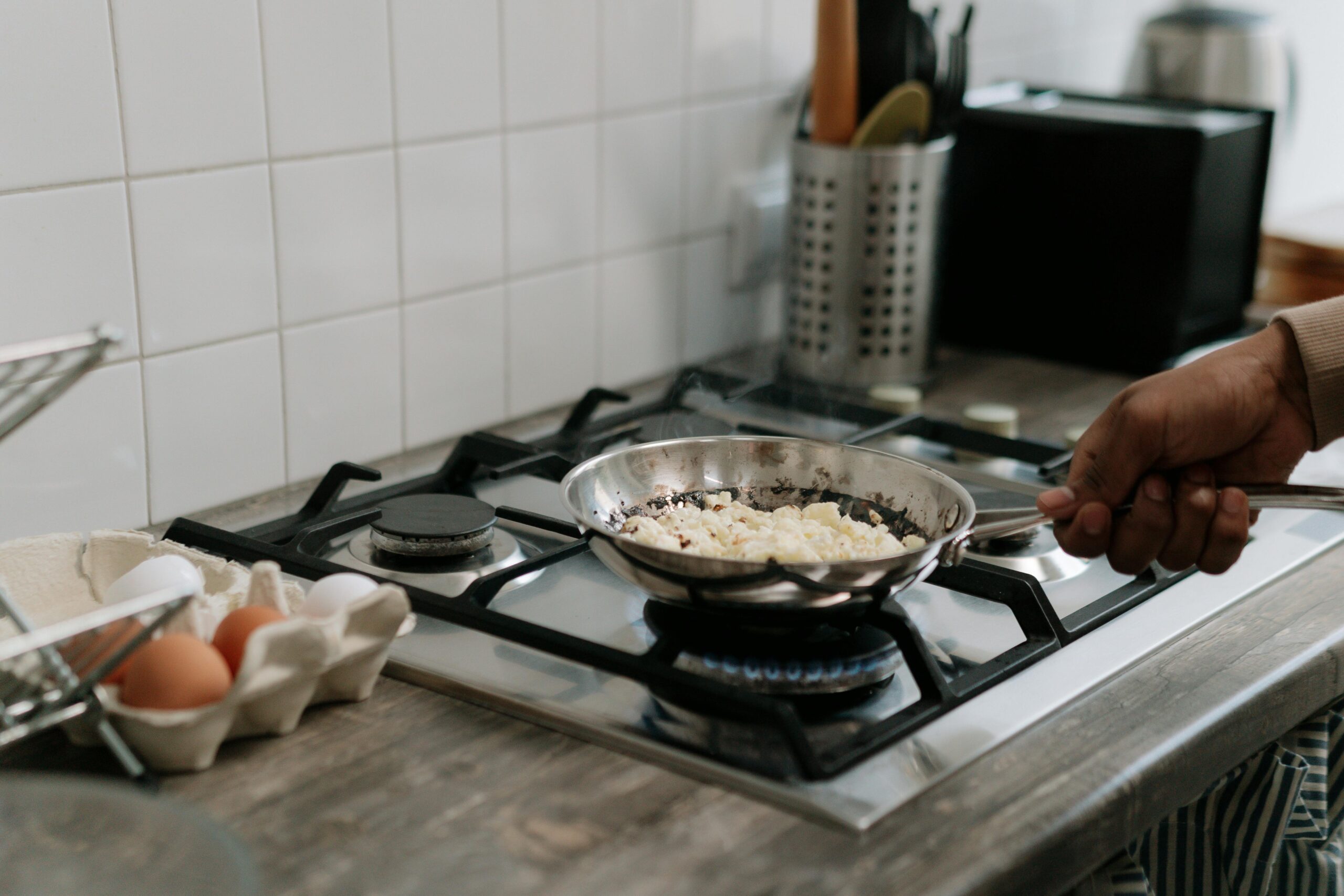Cooking at home can be an absolute joy. There’s nothing quite like whipping up a delicious meal in your own kitchen, especially if you’ve got your favorite playlist going and maybe a glass of wine in hand. But let’s be real, sometimes things can go awry—like when your pan of sizzling bacon suddenly turns into a mini inferno and you have a grease fire on your hands. If you’ve ever experienced one in your kitchen, you know how frightening it can be, and you need to act fast to put it out. Hopefully, you’re never subject to such a hazard, but in the spirit of staying prepared, check out these tips on how to safely handle a grease fire.
Step 1: Don’t panic (seriously).
Yes, it’s easier said than done when you see a part of your stove engulfed in flames. But panicking might cause you to freeze up, or do something irrational, like using water to try and extinguish it.
Step 2: Do not use water.
Which leads us to our next point. Make this your mantra and repeat it thrice: “I will never, ever use water on a grease fire.” Why? Because water and grease do not get along, and it can actually make things worse. Pouring water on a grease fire will cause the grease to splatter and spread the flames. So put that glass of water down, and let’s look at some better options.
Step 3: Turn off the heat.
If it’s safe to do so, turn off the burner. Cutting off the heat source can help prevent the fire from getting worse. Just be careful and avoid leaning over the flames to reach the knob—nobody wants singed eyebrows.


Step 4: Cover it up.
Emphasis again on using your best judgment to make sure it’s safe—cover the flaming pan with a metal lid or a cookie sheet. This method works because it cuts off the fire’s oxygen supply, which helps to smother the flames. Just make sure it’s metal because glass could shatter from the heat, while plastic…just don’t do it.
Step 5: Use baking soda (not flour!)
Baking soda is your kitchen’s little fire-fighting hero. If the fire is small and manageable, grab a handful of baking soda and toss it onto the flames. The sodium bicarbonate in baking soda helps to put out the fire. However, do not use flour—flour is highly flammable and will make things a thousand times worse.
Step 6: Use a fire extinguisher (if you have one).
If you have a Class B or multi-purpose fire extinguisher—those are designed to handle grease fires—this is the time to use it. Pull the pin, aim at the base of the fire, and give it a good squeeze. Just remember, fire extinguishers can make a mess, but that’s a small price to pay for a fire-free kitchen.
Step 7: Know when to call for help.
If the fire is out of control or you’re unable to put it out, get everyone out of the house and call 911. Your safety is the top priority, and firefighters are trained to handle these situations.


What should you not do during a grease fire?
Knowing what not to do is just as important as knowing what to do. Here are some important things to remember.
- Do not use water or flour: It’s worth mentioning again.
- Do not move the pan: Moving a flaming pan is a recipe for disaster. You’re likely to spill the burning grease and spread the fire. Leave the pan where it is and focus on smothering the flames.
- Do not use a towel or cloth: Throwing a wet or dry towel over the fire might seem like a good idea, but it can easily catch fire itself, making the situation worse.
- Do not fan the flames: Waving a towel or any other object to fan the flames will only give the fire more oxygen, which is exactly what you don’t want.
How can you keep grease fires at bay?
While it’s important to know how to put out a grease fire, prevention is the best strategy. Here’s how to avoid a fiery fiasco altogether.
- Stay present: Always keep an eye on your food while you’re cooking. It’s easy to get distracted, but unattended cooking is a leading cause of kitchen fires.
- Keep flammable items away: Dish towels, paper towels, and wooden utensils should be kept away from the stove.
- Maintain a clean kitchen: Grease buildup can easily catch fire. Regularly clean your stovetop, oven, and range hood to prevent grease from accumulating.
- Use a splatter guard: When frying, use a splatter guard to minimize grease splatter and reduce the risk of a grease fire.
